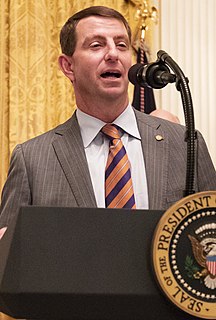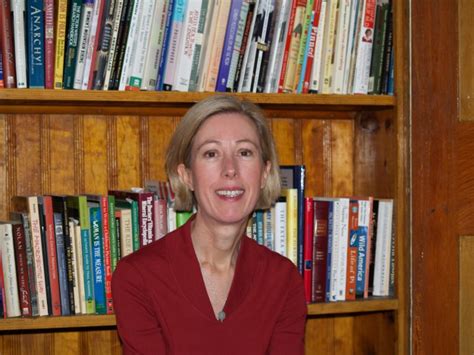A Quote by Dabo Swinney
I think we have a sin problem in the world. It's so easy to say we have a race problem, but we got a sin problem.
Related Quotes
[T]he main problem in life is sin, and the only solution is God and his grace. The alternative to this view is to identify something besides sin as the main problem with the world and something besides God as the main remedy. That demonizes something that is not completely bad, and makes an idol out of something that cannot be the ultimate good.
Clipper took a relatively simple problem, encryption between two phones, and turned it into a much more complex problem, encryption between two phones but that can be decrypted by the government under certain conditions and, by making the problem that complicated, that made it very easy for subtle flaws to slip by unnoticed. I think it demonstrated that this problem is not just a tough public policy problem, but it's also a tough technical problem.
If we want to impact hundreds - or millions - of people, we have to do things differently. If we look at the problem as an infrastructural problem, we cannot make an impact because it requires a lot of effort. But when we convert this problem into a knowledge problem, suddenly the problem is manageable.
The church latched on to that old doctrine of original sin like a dog to a stick, and before you knew it, the whole gospel got twisted around it. Instead of being God’s big message of saving love for the whole world, the gospel became a little bit of secret information on how to solve the pesky legal problem of original sin.






































